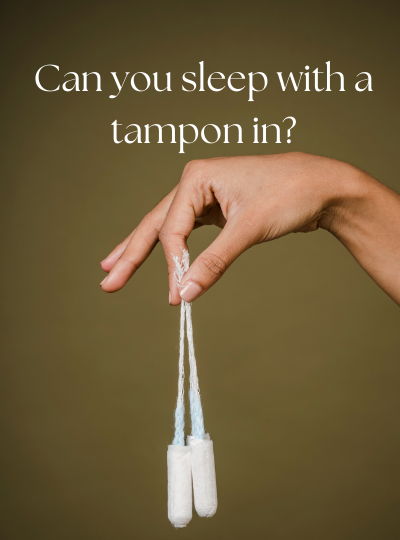What is ovulation?
Ovulation is the release of an egg (ovum) from the ovary into the fallopian tube. This process is triggered by a surge in the hormone luteinizing hormone (LH) that stimulates the ovary to release the egg.
Ovulation symptoms can be different for each woman and may change from one menstrual cycle to another. Some of the common symptoms that women may experience during ovulation include pain in one or both ovaries, change in vaginal discharge, mood swings, abdominal cramps, food cravings, and headaches.
Also read - Can sex affect your menstrual cycle?
Is weight gain possible during ovulation?
Yes, weight gain is possible during ovulation. However, weight gain may occur during ovulation is likely due to fluid retention and not to fat accumulation. Here are some factors that may contribute to weight gain during ovulation:
- Increased estrogen level: Estrogen promotes increased water retention in the body, leading to temporary weight gain.
- Hormonal fluctuations: Fluctuations in hormone levels during ovulation can cause changes in appetite, which can lead to overeating and weight gain.
- Emotional factors: Emotional factors such as stress and anxiety can lead to coping mechanisms such as emotional eating, which can contribute to weight gain.
Mostly, any weight gained during ovulation is likely temporary and will resolve once the menstrual cycle is completed. By making healthy lifestyle choices such as eating a well-balanced diet and staying active, it's possible to manage weight during this time.
Also read - Why am I gassy on my period?
Why do you gain weight during ovulation? (causes)
There are several possible causes of weight gain during ovulation, including:
- Fluid retention: Increased levels of the female hormone estrogen, which are typically higher during ovulation, can lead to fluid retention in the body.
- Appetite: Hormonal fluctuations during ovulation can sometimes lead to changes in appetite, which can result in overeating and weight gain.
- Emotional factors: The emotional fluctuations that can occur during ovulation can also lead to stress and anxiety, which can trigger emotional eating and weight gain.
- Metabolic factors: The increase in progesterone that occurs during ovulation can slow down the metabolism, which can lead to weight gain.
- Lack of physical activity: During ovulation, some women may experience PMS symptoms such as cramping and bloating, which can make it difficult to stay active, leading to weight gain.
Also read - Can yeast infection delay your period?
Is it normal to gain weight during ovulation?
It Depends.
Many women may experience some weight fluctuation during fertility cycles, particularly as a result of hormonal changes, fluid retention, or other hormonal fluctuations. However, in some cases, there may be an underlying medical issue that is causing the weight gain. If the weight gain is persistent or significant, or if it's accompanied by other symptoms, it's important to consult with a healthcare provider to assess any potential underlying health conditions and develop an appropriate treatment plan.
Also read - Can you get a Brazilian wax while on your period?
How much weight do you gain during ovulation?
The amount of weight that women may gain during ovulation varies greatly and can depend on a variety of factors such as the individual's body, metabolism, and hormone levels. However, any weight gained during ovulation is likely temporary and will resolve once the menstrual cycle is completed.
On average, some women may gain a couple of pounds during ovulation due to the combination of fluid retention, hormones, and other factors. This weight gain is typically short-lived and will soon be lost after ovulation.
Also read - Can a UTI delay your period?
Tips to control weight during ovulation
Here are some tips to help you control your weight during ovulation:
- Eat a balanced diet: Eat a diet rich in fruits, vegetables, whole grains, lean proteins, and healthy fats. Avoid processed foods, sugary beverages, and unhealthy fats.
- Stay hydrated: Drink plenty of water to prevent fluid retention during ovulation. Aim to drink at least eight 8-ounce glasses of water per day.
- Exercise regularly: Maintaining a regular exercise routine can help to improve your metabolism and maintain a healthy weight. Aim for 30 minutes of moderate exercise most days of the week.
- Manage stress: Stress can impact hormone levels and increase cravings for unhealthy foods. Practice mindfulness techniques such as meditation, yoga, or deep breathing to manage stress.
- Get enough sleep: Getting enough sleep is crucial for weight management. Aim for 7-8 hours of sleep per night.
- Avoid alcohol and smoking: Alcohol and smoking can increase caloric intake and reduce the quality of your sleep, which can impact your weight during ovulation.
- Track your weight: Record your weight to track your success and make adjustments as needed.
Also read - Can sleeping position affect your periods?
Signs that you are ovulating
Here are some common signs of ovulation:
- Discharge: The consistency and amount of vaginal discharge can change during ovulation. Egg-white-like cervical mucus is a sign that you are ovulating.
- Breast tenderness: Some women may experience breast tenderness or swelling during ovulation.
- Mood changes: Ovulation hormones such as estrogen and LH can affect mood, leading to feeling more emotional or irritable.
- Abdominal cramping: Some women may experience light cramping or discomfort in the lower abdomen, which is a sign of ovulation.
- Hunger: A sudden increase in appetite during ovulation may be a sign of a hormone surge.
- Fatigue: Hormonal fluctuations during ovulation can lead to feelings of fatigue or exhaustion.
Also read - Can you donate blood during periods?
When to consult a professional?
Consulting with a healthcare professional is crucial if you are experiencing persistent or concerning symptoms related to ovulation. These may include:
- Severe lower abdominal pain or cramping that occurs at the same time each month.
- A lack of period symptoms when previously regular.
- A sudden increase in acne or facial hair growth.
- Difficulty getting pregnant, despite trying for longer than a year.
- Unusual vaginal discharge, such as unusual colors or a foul odor, that persists for several days.
- Excessive hair loss or hair growth.
More to read
Does Menstrual Cup Break The Hymen?
Can Sex Make Your Period Come Early?










